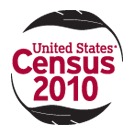Co-chairs' meeting with representatives of Major
Groups and other stakeholders
Thank
you honorable co-Chairs.
Let
me begin by noting that during previous sessions, the Indigenous Peoples Major
Group addressed the broader theme of governance and those statements are
available at the Sustainable Development Knowledge Platform. Our presentation
today will therefore focus more specifically on the rule of law, which is
certainly not an abstract concept to the World’s Indigenous Peoples.
The
rule of law and human rights do matter to Indigenous Peoples; affirming and
implementing these legal and conceptual frameworks are among the reasons why we
engage with the UN system and the States.
Indeed, the Indigenous
Peoples Major Group takes note of the Secretary-General’s Report on ‘Delivering
Justice’ where he states: “The rule of law is a core principle of governance
that ensures justice and fairness, values which are essential to our humanity”.[i]
From
an indigenous perspective, justice and fairness, along with other key themes
such as durable peace, human rights, security, accountability and sustainable
development, cannot be promoted in isolation or at the expense of Indigenous
Peoples. With justice, fairness, and the rule of law based in the human rights
framework, there is much that can and must be done to ensure the voices,
interests, and concerns of Indigenous Peoples are included in the post-2015
development agenda.
Honorable
Co-Chairs, we are aware that all 193 United Nations Member States endorsed
the idea that the rule of law and development are mutually reinforcing.
Additionally, States affirmed that this interrelationship should be considered
in the post-2015 development agenda.[ii]
Moreover, there already seems to be a broad consensus that the post-2015 agenda
needs to move forward with sustainable development at its core and the
eradication of poverty as its top priority. Indigenous Peoples, however,
are well aware that poverty will not be alleviated without respect for rights,
justice and fairness.
Based
on this reality, and to better address inequalities faced by Indigenous
Peoples, it is essential that the advancement
of the rule of law at the national and international levels be clearly articulated as
a priority in this new agenda. There is a need for Governments, for instance on the country-level, to
strengthen their regulatory systems with strong, yet adaptable legal frameworks
that not only take into account of the special situations and legal frameworks
of Indigenous Peoples, but that conform fully with internationally accepted
human rights standards and resulting legal obligations and commitments.
In this context, the rule of law as defined by the Secretary
General forms a critical point of reference for the empowerment and meaningful
participation of Indigenous Peoples and other marginalized groups in the
post-2015 agenda.[iii] While the OWG process is considering the
linkages between the rule of law and sustainable development, there are a
number of challenges and issues relevant to Indigenous Peoples that should be
taken into consideration. These include, but are not limited, to: Treaties, agreements and other
constructive arrangements
between States and Indigenous Peoples; engagement with indigenous legal and justice
systems; Constitution-making; institution-building; participatory mechanisms
for conflict resolution; and meaningful and effective participation in
processes aimed at strengthening the rule of law. Fortunately, there are
mechanisms that can guide States and the United Nations System toward
meaningful engagement with Indigenous Peoples in these areas.
The UN Declaration on the
Rights of Indigenous Peoples, for instance, builds on existing human rights standards, many of
which represent established, legally-binding obligations of States, and applies
these standards to the specific needs and circumstances of Indigenous Peoples.
The Declaration sets out minimum standards for the “survival, dignity and
well-being” of Indigenous peoples around the world as well as participatory
frameworks for resolution of conflicts.[iv]
The Rio+ 20 Outcome Document stressed the importance of the
participation of Indigenous Peoples in the achievement of sustainable
development. It also recognizes the importance of the UN Declaration on the
Rights of Indigenous Peoples in the context of global, regional, national, and
sub-national implementation of sustainable development strategies.
In
closing, the Indigenous Peoples major group affirms that the rule of law is a
principle of governance that promotes justice, fairness, and
accountability. We call upon the OWG
co-chairs to ensure that the culmination of this process includes a clear
message that implementation
by States of the UN Declaration on the Rights of Indigenous Peoples and other human
rights standards including the Human Rights Covenants and the Convention on the
Elimination of all Forms of Racial Discrimination should be regarded as political,
moral and legal imperatives without qualification.
Hahom/Thank you.
[i] “Delivering justice: programme of
action to strengthen the rule of law at the national and international levels”,
16 March 2012, A/66/749, paragraph 1.
[ii] See http://www.un.org/News/Press/docs/2013/dsgsm721.doc.htm
[iii] The Secretary-General defines the rule of law as “a principle of governance in which all persons, institutions and
entities, public and private, including the State itself, are accountable to
laws that are publicly promulgated, equally enforced and independently
adjudicated, and which are consistent with international human rights norms and
standards. It requires, as well, measures to ensure adherence to the principles
of supremacy of law, equality before the law, accountability to the law,
fairness in the application of the law, separation of powers, participation in
decision-making, legal certainty, avoidance of arbitrariness and procedural and
legal transparency." (Report of the Secretary-General: The rule of law and
transitional justice in conflict and post-conflict societies” (2004))
[iv] There
are other mechanisms that should be highlighted in this context such as the
CERD, the Convention on the Rights of the Child, ILO Convention 169, etc.
[i] “Delivering justice: programme of
action to strengthen the rule of law at the national and international levels”,
16 March 2012, A/66/749, paragraph 1.
[ii] See http://www.un.org/News/Press/docs/2013/dsgsm721.doc.htm
[iii] The Secretary-General defines the rule of law as “a principle of governance in which all persons, institutions and
entities, public and private, including the State itself, are accountable to
laws that are publicly promulgated, equally enforced and independently
adjudicated, and which are consistent with international human rights norms and
standards. It requires, as well, measures to ensure adherence to the principles
of supremacy of law, equality before the law, accountability to the law,
fairness in the application of the law, separation of powers, participation in
decision-making, legal certainty, avoidance of arbitrariness and procedural and
legal transparency." (Report of the Secretary-General: The rule of law and
transitional justice in conflict and post-conflict societies” (2004))
[iv] There
are other mechanisms that should be highlighted in this context such as the
CERD, the Convention on the Rights of the Child, ILO Convention 169, etc.










No comments:
Post a Comment